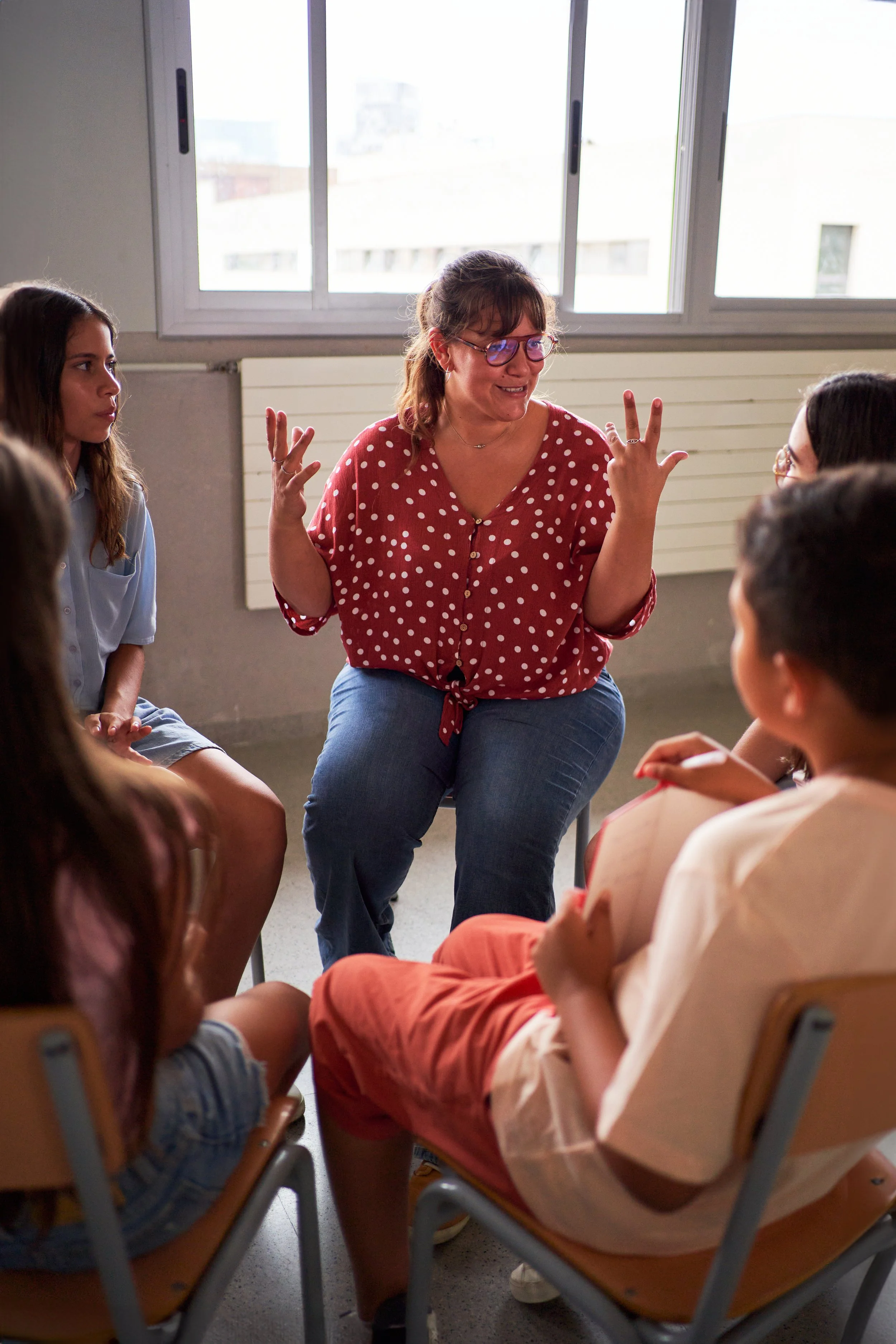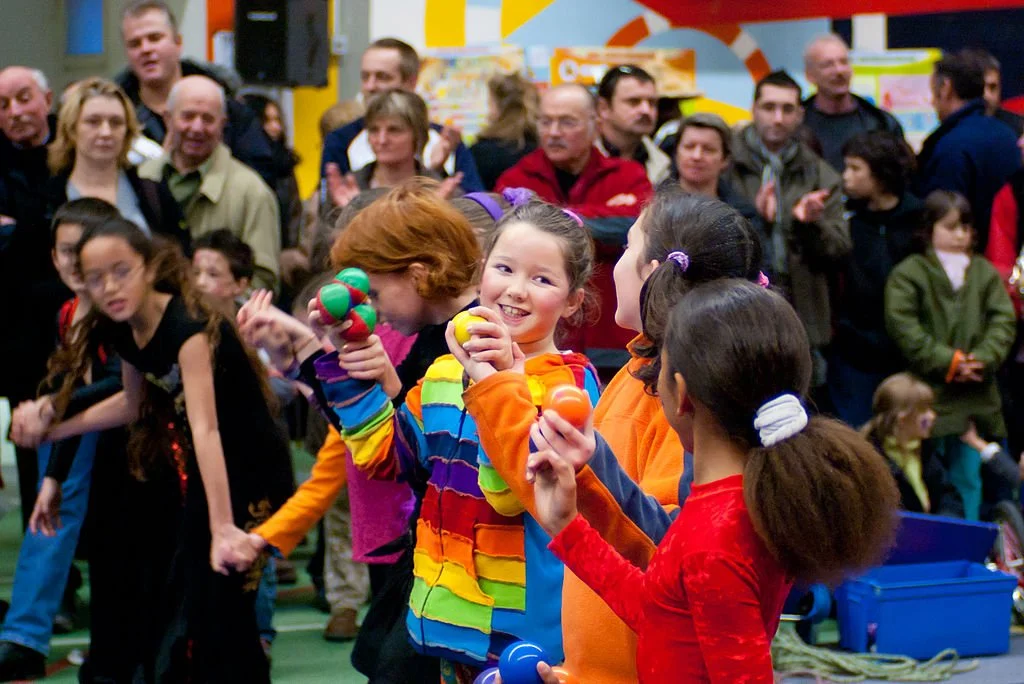Winner of the Skipping Stones Award for Best Teaching Resource
The Cooperative Games
Bullying Prevention Program
Discover how cooperative play can help children connect, build confidence, and make bullying a thing of the past.
Play Your Way to a Kinder Classroom
This book is an all-in-one resource that explains the why and how-to of cooperative play. It provides scholarship and research as well as a wealth of teaching tips, pedagogical support, and directions for over 50 cooperative games. It is a useful tool kit for those who work with children and it belongs on the shelf of every early childhood educator. It is also a highly readable and fascinating story for anyone who cares about the state of the world and the magic that can happen when people join together in the spirit of playful cooperation.
Written by educator and CooperativeGames.com founder Suzanne Lyons, M.A., M.A., this richly illustrated 154-page guide will show you everything you need to know to use cooperative games in social-and-emotional learning, teach kindness and even prevent bullying.
🏆 2017 Skipping Stones Multicultural Magazine Book Award
🎲 Step-by-step instructions for research-tested active and board games
🎓 Designed for PreK–Grade 2 classrooms and early learning settings
📸 Filled with illustrations and classroom photos
💬 Includes expert insights, teaching tips, and bonus activities
🏆 2017 Skipping Stones Multicultural Magazine Book Award 🎲 Step-by-step instructions for research-tested active and board games 🎓 Designed for PreK–Grade 2 classrooms and early learning settings 📸 Filled with illustrations and classroom photos 💬 Includes expert insights, teaching tips, and bonus activities
Why Educators Love
This Program
Each game is backed by studies showing how cooperation builds empathy and reduces aggression. Teachers can start right away, no special equipment or training required.
Research-Tested & Ready to Use
Nurtures Emotional Intelligence Early
Play becomes the practice ground for kindness. Children learn how to take turns, manage emotions, and support one another in a joyful, natural way.
Builds Inclusive, Caring Classrooms
The program helps teachers shift classroom culture from “me versus you” to “we.” That shift transforms behavior, belonging, and learning.
Praise for The Bullying Prevention Program
“…Apart from its other benefits, including pure fun, Lyons shows us that helping children to play with, rather than against, one another may help create school climate where bullying is less likely to take root.”
Alfie Kohn
Author of No Contest, The Case Against Competition
“The Cooperative Games Bullying Prevention Program is a great piece of work and significant contribution to bullying prevention. Through the use of practical, easy to implement, and class-friendly games, Suzanne Lyons promotes a new mindset regarding the substantial impact of cooperatively structured play activities. This work reaches into and beyond bullying prevention with techniques that transform classrooms into social milieus reinforcing values of sharing, kindness and peace…”
Dr. April Bay
Psychologist and Author of the University of Nevada Reno study, “Cooperative
Games: A Way to Modify Aggressive and Cooperative Behaviors in Young Children”
“…The more we play together, the happier we’ll be…This delightful book is a cooperative gem!”
Raffi
Singer, Author and Founder of the Centre for Child Honouring
Changing the Way We Play, Teach, and Grow
The games are fun, but the impact is profound. This program turns everyday lessons into opportunities for empathy and understanding. It empowers educators to:
Foster empathy and self-regulation through cooperative play
Replace competition with collaboration in early learning
Create safe, joyful spaces where every child belongs
Build the social foundation for lifelong kindness and respect
When play feels safe and inclusive, children relax, connect, and flourish. The result is a classroom culture rooted in trust and joy, where every child feels they belong.
Ready to get started?
Help your students grow into caring classmates and confident learners










